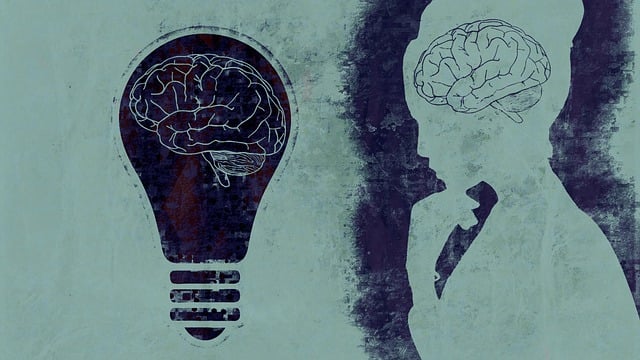Alcohol abuse among young adults is a complex issue driven by genetic predisposition, peer pressure, and environmental factors. It often stems from academic pressures, identity formation, and social expectations, leading to severe mental and physical health consequences if untreated. Effective treatment involves early intervention with evidence-based practices like cognitive-behavioral therapy (CBT), addressing individual circumstances and underlying issues such as trauma or anxiety. Integrated approaches including crisis support, public awareness campaigns, mindfulness meditation, emotional intelligence training, and Social Skills Training create a supportive environment to reduce stigma and empower young adults in managing their emotional health and relationships, preventing relapse for long-term recovery.
Mental wellness promotion among young adults is a pressing issue, with alcohol abuse being a prominent concern. This article explores the multifaceted approach to addressing young adult alcohol abuse, from understanding its causes and consequences to highlighting effective treatment methods. We delve into the critical role of therapy in tackling underlying issues and the importance of creating supportive environments for recovery. Additionally, we provide long-term strategies for maintaining mental wellness, emphasizing evidence-based approaches, including therapy for young adults alcohol abuse.
- Understanding Young Adult Alcohol Abuse: Causes and Consequences
- The Role of Therapy in Addressing Underlying Issues
- Evidence-Based Approaches for Effective Treatment
- Creating a Supportive Environment for Recovery
- Long-Term Strategies for Maintaining Mental Wellness
Understanding Young Adult Alcohol Abuse: Causes and Consequences

Alcohol abuse among young adults is a growing concern, with complex underlying causes that often stem from a combination of genetic predisposition, peer pressure, and environmental factors. This demographic faces unique challenges that contribute to their risk of developing alcoholism, such as academic pressures, identity formation, and navigating social expectations. Early intervention and tailored support are crucial in addressing this issue. Therapy for young adults with alcohol abuse disorders should consider individual circumstances, incorporating evidence-based practices like cognitive-behavioral therapy (CBT) and motivational interviewing.
The consequences of untreated alcohol abuse can be severe, impacting not only the individual’s mental health but also their physical well-being, academic or professional performance, and relationships. Without proper risk management planning for mental health professionals, community outreach program implementation, and self-care practices, young adults struggling with alcoholism may face long-term repercussions, including legal troubles, social isolation, and chronic health conditions.
The Role of Therapy in Addressing Underlying Issues

Therapy plays a pivotal role in mental wellness promotion by addressing underlying issues that often remain hidden beneath the surface. For young adults grappling with alcohol abuse, therapy offers more than just sobriety; it’s a path to self-discovery and healing. Through therapeutic interventions like cognitive behavioral therapy (CBT), individuals can learn effective stress reduction methods, gain empathy building strategies, and develop inner strength crucial for long-term mental resilience.
By delving into their past experiences and emotions, young adults in therapy can uncover the root causes of alcohol abuse, whether it stems from trauma, anxiety, or other unmet needs. This process facilitates personal growth and equips them with coping mechanisms to navigate life’s challenges without resorting to substance abuse. Therapy also fosters a safe space for expressing feelings, cultivating empathy towards oneself and others, and cultivating inner strength that can weather any storm.
Evidence-Based Approaches for Effective Treatment

In the pursuit of mental wellness promotion, evidence-based approaches play a pivotal role in fostering effective treatment strategies, particularly for young adults grappling with issues like alcohol abuse. Therapy for this demographic often leverages cognitive-behavioral therapy (CBT), which has proven successful in addressing substance abuse disorders by identifying and modifying negative thought patterns and behaviors. This structured approach empowers young adults to develop healthier coping mechanisms, enhance their decision-making abilities, and cultivate resilience against relapse.
Complementing CBT, crisis intervention guidance and public awareness campaigns development have emerged as potent tools. Crisis interventions provide immediate support during acute distress, while promoting early identification of mental health issues. Public awareness campaigns, on the other hand, contribute to destigmatization by educating communities about mental health concerns, including alcohol abuse among young adults. Integrating mindfulness meditation into these strategies further enhances treatment efficacy, fostering self-awareness, emotional regulation, and stress reduction—key components in maintaining long-term mental wellness.
Creating a Supportive Environment for Recovery

Creating a supportive environment is paramount for fostering mental wellness, especially among young adults navigating issues like alcohol abuse and trauma. This involves cultivating spaces that encourage open dialogue about emotional experiences, providing access to quality therapy for young adults dealing with substance abuse, and offering Trauma Support Services tailored to their needs. By integrating these services into communities, schools, and workplaces, we can normalize conversations around mental health and reduce the stigma associated with seeking help.
The role of emotional intelligence cannot be overstated in this context. Enhancing emotional intelligence through training helps young adults recognize and manage their emotions effectively, a crucial skill for maintaining stability during recovery. Social Skills Training is another integral component, equipping them with the ability to form healthy relationships and build resilience against stressors that could trigger alcohol abuse or exacerbate trauma symptoms. Together, these initiatives create a network of support, enabling young adults to prioritize their mental wellness and thrive.
Long-Term Strategies for Maintaining Mental Wellness

Maintaining mental wellness is an ongoing process that requires more than just quick fixes. Long-term strategies are essential to foster resilience and overall well-being, especially for young adults navigating life’s challenges. One effective approach is integrating therapy into one’s routine; it provides a safe space to explore and address underlying issues, including any history of alcohol abuse, which can be a coping mechanism for unaddressed trauma.
Therapy offers tailored support services and crisis intervention guidance, helping individuals develop healthy coping mechanisms and self-care routines. By learning to manage stress, process emotions, and set personal boundaries, young adults can better prevent relapse and promote positive mental health. This proactive approach equips them with the tools to navigate life’s twists and turns, ensuring a more stable and fulfilling future.
Mental wellness promotion among young adults is a multifaceted endeavor. By understanding the causes and consequences of alcohol abuse, integrating evidence-based therapy for underlying issues, creating supportive recovery environments, and implementing long-term strategies for maintaining mental health, we can significantly improve outcomes. Specifically, focusing on evidence-based approaches like cognitive-behavioral therapy (CBT) in conjunction with creating safe spaces for open dialogue, we can foster a healthier, more resilient young adult population. Ultimately, investing in these strategies is crucial to ensuring better mental wellness and quality of life for our youth.











